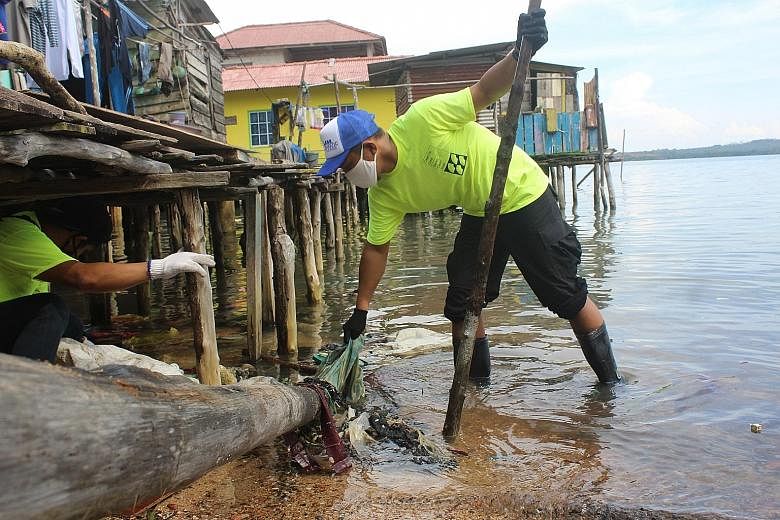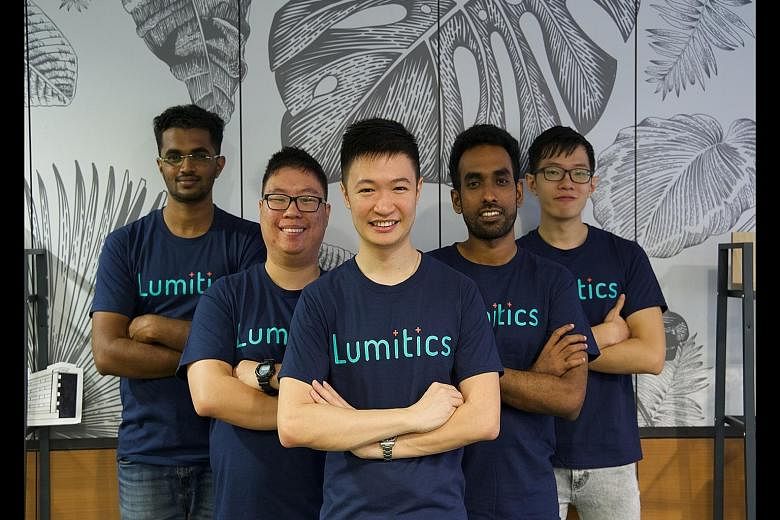Two local sustainability companies are among the 25 winners of a global start-up competition organised by a United Nations body.
Beating out some 10,000 contenders, the winners will now get access to venture capitalists, mentorship and potential partnerships worldwide.
Seven Clean Seas is racing to remove plastic from coasts, seas and rivers while Lumitics wants hotels and airlines to slash food waste.
The UN World Tourism Organisation launched the first tourism start-up competition to address the UN's 17 Sustainable Development Goals.
Seven Clean Seas won under the "Life below water" goal while Lumitics prevailed under the "Sustainable consumption and production" goal.
"The award gives us international recognition and validation for all the hard work we've put in, and for our mission to help kitchens be more sustainable," said Lumitics chief executive Rayner Loi, 26.
The four-year-old company's flagship product is Insight, a tracker that can be placed over rubbish bins to weigh and identify food before it is dumped.
The device has a weight sensor and proprietary image recognition technology to weigh and identify the types of food waste. Kitchen staff just need to dump the food onto the device's tray and press a button for the machine to work. The tray can be tilted to drop the waste into the bin.
The data collected will be sent to an online platform, and analysed to recommend ways the chefs can reduce food waste.
This can help to reduce up to 40 per cent of food waste in kitchens and up to 8 per cent of food costs.
The firm's clients include Accor hotel group and Andaz Singapore.
Lumitics is expanding from hotels and restaurants by developing a smaller version of Insight so that airlines can measure and reduce the amount of uneaten food and drinks. Singapore Airlines is one of its clients.
-
25 Number of winners worldwide in the UN World Tourism Organisation's Sustainable Development Goals global start-up competition.
10,000 Number of green firms worldwide which entered the competition.
Seven Clean Seas founder Tom Peacock-Nazil said being able to access venture capitalists and other backers will be hugely beneficial.
The firm is working with naval engineers in Singapore to build a vessel-like machine that will cruise along rivers and scoop up tonnes of plastic. The firm aims to build the first one soon and deploy it on either the Mekong or Red River in Vietnam by the end of the year.
By 2025, Seven Clean Seas aims to recover 10 million kg of plastic from the worst polluting countries.
As a social enterprise, Seven Clean Seas also wants to provide jobs to people living in coastal communities.
Later this year it will set up a materials recovery facility in south-east Bintan, where 50 Indonesians who have lost their jobs due to the pandemic-induced tourism downturn will be hired to collect plastic waste from businesses and homes and clean up coastal areas. Sorted trash will be sent to a recycling facility in Java.
The start-up uses a system called plastic offsetting to finance its river roving system and to pay employees. Similar to carbon offsetting, firms can buy plastic credits from Seven Clean Seas and invest in its projects to offset unavoidable plastic use.
Firms have to pay US$1,000 (S$1,320) or US$2,000 to buy one plastic credit that will offset 1,000kg of marine plastic.
It currently has 15 plastic-offsetting clients, including Microsoft and reusable masks company FaceWedge.
"One of the beauties of plastic offsetting is that if a company has to pay for that plastic usage, they are financially motivated to reduce the amount of plastic they're using," said Mr Peacock-Nazil, 32.



